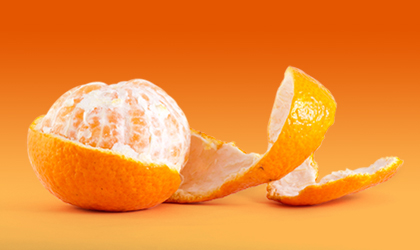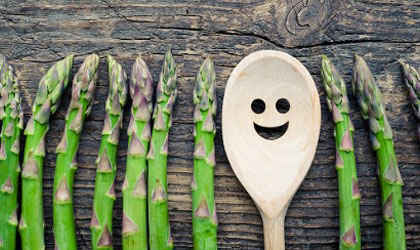
The media and pop culture are guilty of perpetuating the idea that our 20s and early 30s are our ‘prime’ – physically, socially, sexually and emotionally. But the broader implications of these years are more complicated: juggling a career, raising a family and navigating personal goals can be exhausting. No wonder healthy lifestyle habits and proper nutrition often fall by the wayside.
Youth is a pretty powerful tonic. And by harnessing the energy of your 20s and early 30s, you can lay a strong foundation for your health in the years to come. Although fad diets and food restrictions can seem tempting at this age, never before has eating a balanced, colourful and wholefood diet been more crucial. You should pay close attention to your mental health, too. This period can see the rise of stress, anxiety and mental exhaustion. Scheduling in relaxation, self-care, sleep and regular exercise should form essential pillars of your wellbeing. Of course, these ages are also marked by hormonal changes. Fine-tuning your diet and lifestyle are helpful steps to achieve balance and live in accordance with your cycle. Lastly, beyond nutritional interventions, establishing a bespoke supplement regime is another effective measure to support your overall health and happiness.
Healthy Eating Habits For Adults
You're dating, working your first real job, making new friends, considering marriage, and even entertaining the idea of children. Your life is an exciting whirlwind, which, unsurprisingly, means healthy eating often takes a backseat. But nourishing yourself shouldn’t be time-consuming or complex. To conquer your biggest nutritional dilemmas, add mindful eating, meal-prep and healthy fats to your health arsenal. Oh, and you may want to watch your caffeine intake, too.
Make Fast Food Healthy
Grabbing food on-the-go may enable you to meet work deadlines, but it may deprive you of vital nutrients. Instead, try batch cooking curries, stews and soups for lunches and dinners. Top tip: whole-wheat pasta, brown rice and frozen veggies make for speedy kitchen essentials.
Limit Caffeine
Your caffeine intake is another area to watch. Lauded for their energizing and stimulating properties, tea and coffee are sneaky slumber thieves. Live by the rule ‘no caffeine after noon’ to support quality sleep. Want an alternative? Try a healthful cup of herbal tea instead.
Say No to Fat-Free Diets
Newsflash: not all fat is created equal. While fried foods, pastries and takeaways deserve their bad rap; essential fatty acids are critical for overall health. Eicosapentaenoic acid (EPA) and Docosahexaenoic acid (DHA) contribute to the maintenance of normal heart function, blood pressure and vision. Veto fat-free diets; instead, try to eat 2-3 portions of oily fish (sardines, anchovies, salmon) every week. Not a fish fan? Avocados, nuts and chia seeds also contain nourishing alpha-linolenic acid (ALA).
Get Your Five-a-Day
Establishing healthy eating habits early will only serve your waistline, wellbeing and womanhood in the years to come. Aim for at least six portions of fruit and vegetables every day. The more colourful your plate, the more phytonutrients (powerful plant compounds) you’ll consume.
Whey Protein
If increasing muscle gains is on your agenda, you need to ensure a plentiful intake of protein. Supplementing with whey protein is a simple way to achieve your sporting goals. Found in the watery segment of milk, whey protein contains all nine essential amino acids needed for health. The perfect afternoon pick-me-up or post training snack, whey protein powder can cater for your every fitness need.
Sour Cherry Juice
Unlike their sweet counterparts, sour cherries are a far richer source of antioxidants called proanthocyanidins – compounds that give these powerhouses their deep, rich hue. Increasingly, sour cherry juice has become a ‘go-to’ for sports people, many of whom use it for recovery after exercise.
Pack In The Plants
It’s advice that transcends age: eat plants! In recent years, protein, carbs and fats have dominated the nutritional limelight. But, in truth, nothing beats good old fruit and veg. Brimming with antioxidants, fibre and minerals, plants are some of the healthiest foods going. Pack them in!
Reduce Salt Intake
Yes, it makes dishes wonderfully savoury and moreish, but salt can also be a sneaky saboteur for blood pressure. Since men are more prone to hypertension, avoiding processed food, using lemon juice and herbs to flavour meals and going easy on the salt-shaker will help reduce your intake.
Don’t Make Every Lunch a Business Lunch
As you get older, your metabolism won’t be as forgiving of those restaurant mega portions. Swap that greasy chicken sub for a grilled-chicken salad. Eating lunch with a lower glycaemic index (the rate at which carbohydrates increase the level of glucose in the blood) – one without rice, pasta or bread – will support healthy weight management. More smart choices: tortilla-free fajitas, chicken stir-fry, or quinoa with beans.
Limit Alcohol
Paradoxically, we often use alcohol to toast to long-term health. While the occasional glass of red wine may offer some cardiovascular benefits, drinking to excess is anything but a nod to your overall wellbeing. The NHS guidelines advise against drinking more than 14 units a week. And if you’re drinking habitually, try to spread your consumption over 3 or more days. Remember, you should have several drink-free days a week too.
Lifestyle Habits And Health Risks For Adults
Slow Down
Work pressures. New relationships. Endless bills. Your 20s and 30s can be stressful. Give yourself permission to slow down: take up yoga; develop a meditation practice; establish healthy boundaries in your work and professional life; and learn to say ‘no’.
Address Hormone Imbalance
It’s not uncommon for hormone imbalance to rear its head in your 20s and early 30s, leading to menstrual abnormalities, mood swings, adult acne and breast tenderness. Known as ‘nature’s relaxant’, magnesium is a helpful addition to your toolkit, promoting an overall sense of wellbeing. Vitamin B6 and myo-inositol have also demonstrated promise in contributing to regular hormonal activity.
Nourish Skin
Sadly, you won’t have dewy, glowing skin forever. Now is the perfect time to start a skincare regime. Find a gentle cleanser, moisturiser, and sunscreen you love and apply every day. Use at least SPF 15 to protect against sun damage all year-round.
Step Up Sleep Hygiene
The ‘work-hard-play-hard’ mentality of your youth can hijack zzz’s. Practising good sleep habits now will set you up for life. Avoid screen use 90 minutes before bed, live by the ‘no caffeine after noon’ rule and stick to regular sleep and wake times. Valerian and magnesium are often recommended to support quality rest.
Move More
Throughout your 20s, your metabolism operates at full speed. Indulging in the odd treat and forgoing exercise isn’t going to hurt. But your metabolism slows down with age. One way to step it up? Working out. Time to find an activity you enjoy – get ready to sweat!
Have Some Fun
Let’s be honest: adulthood can be hard and complicated. And who says life needs to be serious all the time? Carve out moments each day to smile, laugh and appreciate you’re on a journey. Don’t be afraid to let loose and embrace your inner child.
Vitamins & Supplements
Omegas EPA and DHA
Found in oily fish, EPA and DHA are two omega 3s with hugely important health properties. Aside from supporting normal vision, brain function, heart health and normal blood pressure, empirical data proposes omega 3s may also contribute to hormone regulation. (1) There’s some evidence to suggest EPA and DHA are powerhouses for skin health, too.(2) Because breakouts can still happen… even in adulthood.
Anthocyanidins
It’s never too early to start thinking about skin health. Abundant in dark-skinned fruit, anthocyanidins are compounds that preserve the body’s natural collagen. These powerful antioxidants may reduce UV-related free radical damage that accelerates ageing (3).
Magnesium
Unlike men, women are governed by a menstrual cycle. This means your energy levels may peak and trough throughout the month. If lethargy and apathy become more pronounced, consider supporting your diet through additional magnesium. Not only does magnesium support the reduction of tiredness and fatigue; it’s also widely dubbed as ‘nature’s relaxant’, contributing to normal psychological function. And thanks to its role in supporting normal psychological function, some proponents believe magnesium is a useful addition. (4) Yet it’s a mineral many man struggle to attain enough of from diet alone. Find a multivitamin that delivers at least 250mg.
Vitamin C
That life is busy now is an understatement. And busy lives can leave you prone to illness and infection. A nutritional star, vitamin C supports all angles of health: immunity, collagen production, and cell protection. The perfect sidekick for your ever-expanding life.
Selenium
Selenium ensures there’s not a hair out of place in your hair health. Beyond hair maintenance, selenium plays a key role in nail health and immunity.
Zinc
For skin, hair and nails, look no further than the multi-tasking mineral, zinc. Beyond helping to maintain a healthy complexion, zinc contributes to the normal function of the immune system. Choose a multivitamin that delivers around 15mg to cover any nutritional shortfalls.
L-theanine
Stressful day? We feel you. For a moment of calm, add L-theanine to your toolbox. Extracted from tea, it will nourish you with that ‘nice-cuppa’ feeling.
Cranberry Extract
Some advocates believe the powerful compounds in cranberries may support the urinary tract system. Cranberry Extract is far more potent and less sugary than its juice counterpart.
Vitamin D
Say hello to the ‘sunshine vitamin’. This powerhouse aids the proper absorption and utilisation of calcium, which helps to maintain bone health. And that’s just the tip of the iceberg. Vitamin D is also known to support immunity and cognition. Since the body synthesises vitamin D from sunlight, the NHS recommends taking a 10μg of vitamin D in winter months. Top tip: try to bask in 15 minutes of direct sunlight daily.
Chromium
Though a little under-the-radar, chromium is nonetheless important for your overall wellbeing. This mighty mineral is often recommended to help the body utilise insulin, curbing those pesky sugar cravings that can hijack your health goals.
B Vitamins
Burning the candle at both ends takes its toll on the body. It’s no secret that stress can lead to digestive problems, muscle pain and headaches. Almost every biochemical process requires B vitamins, which is a testament to just how essential they are. With this in mind, increase your dietary sources of B vitamins with whole grains, green leafy vegetables, dairy and fish. For additional support, consider a B-complex supplement.
Vitamin B6
Let’s not sugar-coat it: PMS can be difficult to navigate. The mood swings. The bloating. The breast tenderness. The fatigue. Argh. However, vitamin B6 is becoming increasingly popular for its contribution to regular hormonal activity (6).
Vitamin B12
A jam-packed diary can leave you frazzled and exhausted. Known to contribute to the reduction of tiredness and fatigue, vitamin B12 is well-worth considering. Following a plant-based diet? Supplementing with vitamin B12 is essential because it’s largely found in animal-based sources.
Iron
Every month, women who menstruate lose iron-containing blood. And without enough iron, you’ll feel sluggish, exhausted, and weak. Evidence suggests low iron levels are the main risk factor in the development of one kind of hair shedding, chronic telogen effluvium (CTE), amongst women in this age group (5).
CoQ10
Involved in the metabolic processes that convert glucose into energy, CoQ10 is often touted as an ‘energy sparkplug’. That’s why it’s so abundant in muscle tissue, with the heart muscle containing the highest concentration of CoQ10. The body’s ability to produce CoQ10 declines with age, so you may want to consider adding this nutrient to your daily regime.
Korean Ginseng
With such a full plate, it can be tempting to lean on caffeine when your energy tank sputters. But, as all java enthusiasts know, this can cost you your sleep, mood and even digestion. A well-known ‘adaptogen’, Korean Ginseng may help to maintain that ‘get up and go’ feeling sans caffeine. Some experts believe the huge popularity of this herb is down to its mild stimulatory benefits.
Valerian Root Extract
Work-life-balance stealing those precious zzz’s? Valerian root is a traditional herbal remedy used for the temporary relief of sleep disturbances and mild anxiety.
References:
-
Deutch B. Menstrual pain in Danish women correlated with low n-3 polyunsaturated fatty acid intake. Eur J Clin Nutr. 1995;49(7):508-16.
-
Spencer. E, Ferdowsian. H, Barnard. N. Diet and acne: a review of the evidence. International Journal of Dermatology. 2009;48(4):339-347.
-
Tsoyi K. et al., Anthocyanins from Black Soybean Seed Coats Inhibit UVB-Induced Inflammatory Cylooxygenase-2 Gene Expression and PGE2Production through Regulation of the Nuclear Factor-κB and Phosphatidylinositol 3-Kinase/Akt Pathway. Journal Of Agricultural And Food Chemistry. 2008;56(19):8969-8974.
-
The Effects of Magnesium Supplementation on Subjective Anxiety and Stress—A Systematic Review. Nutrients. 2017;9(5):429.
-
Rushton D.H. Investigating and managing hair loss in apparently healthy women. Canadian Journal of Dermatology. 5:455-461.
-
Kashanian M et al., Pyridoxine (vitamin B6) therapy for premenstrual syndrome. Int J Gynaecol Obstet. 2007;96:43-4.
Related Posts
Disclaimer: The information presented by Nature's Best is for informational purposes only. It is based on scientific studies (human, animal, or in vitro), clinical experience, or traditional usage as cited in each article. The results reported may not necessarily occur in all individuals. Self-treatment is not recommended for life-threatening conditions that require medical treatment under a doctor's care. For many of the conditions discussed, treatment with prescription or over the counter medication is also available. Consult your doctor, practitioner, and/or pharmacist for any health problem and before using any supplements or before making any changes in prescribed medications.

Keri
Keri Filtness has worked in the Nutrition Industry for 19 years. She is regularly called upon for her professional comments on health and nutrition related news. Her opinions have been featured by BBC3, Prima, Vitality, The Mirror, Woman’s Own and Cycling Weekly, amongst others. She has also worked one to one with journalists, analysing their diets and health concerns and recommending changes and additions, where appropriate.
View More



